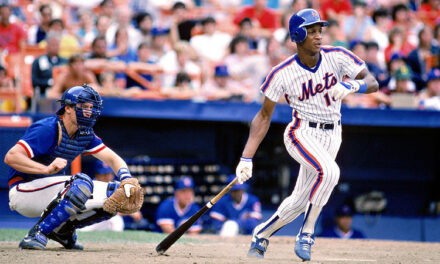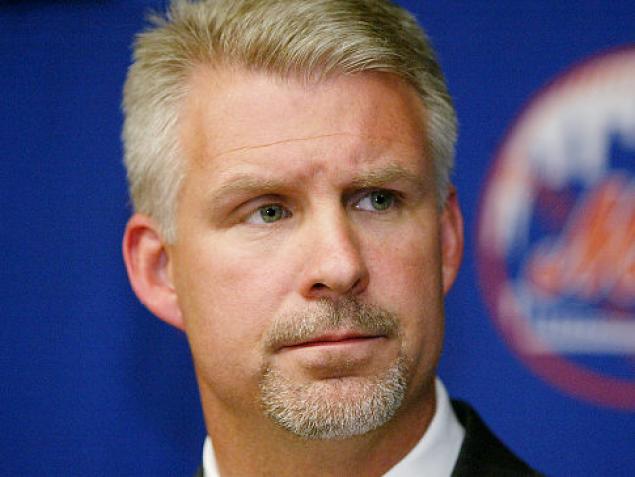
Current MLB Network Sirius XM host Steve Phillips served as the general manager of the New York Mets from 1997-2003 after working in their scouting department from 1990-1996. I recently had the chance to talk to the Mets former GM.
Phillips works with Eduardo Perez at Sirius, who was most recently the runner up for the Mets managerial position, losing out to Carlos Beltran. Phillips says he has the utmost respect for Perez and expects him to be in a Major League dugout sooner rather than later, but also feels Beltran was a well deserving hire by the Mets.
As for Perez, Phillips told me that former Gold Glove center fielder Jim Edmonds says he owes the majority of success in his career to Perez who taught him how to pick up on pitchers tipping their pitches while playing with him for the Angels early in his career from 1993-1995.
Phillips credited Perez as one of the best at utilizing this ability to pick up on pitchers, who were ultimately tipping something. He also mentioned the new Mets skipper in Beltran who has a high reputation in this area, as well.
“His chemistry with the players is something special,” said Phillips about Perez, who always receives the warmest of greetings by every member of each Major League clubhouse they visit during the radio station’s annual spring training tour for the show.
“He has so much experience around the game as a player and coach in dugouts at numerous levels.”
Perez works closely with MLB Network radio’s analytics department, which plays a lot in today’s game and as Phillips says this aspect has come a long way since his era.
“Moneyball skyrocketed the importance of on-base percentage although we still used this measure prior to the book on this.”
Phillips remembers his scouting department having to convince Mets ownership in the mid-90’s to purchase cameras to put up the first and third base lines and behind home plate to enhance the scouting department, which did not utilize video technology at the time.
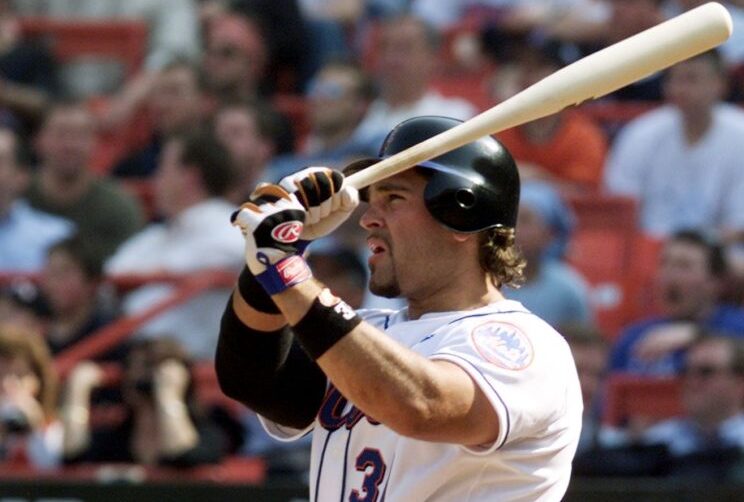
Fast forward to 1998, when Phillips was in the early part of his second season as general manager of the New York Mets. Leading up to the Mike Piazza trade in May, Phillips knew Marlins general manager Dave Dombrowski really well, who just acquired Piazza from the Dodgers.
He was also familiar with Dombrowski’s thought process after making a trade with him prior to the start of the season, which saw the Mets acquire pitchers Al Leiter and Dennis Cook. As Phillips told me, he made three separate lists centered around three players who Dombrowski had shown an interest to in the past in the Mets organization.
Phillips created groups of lower-level players around the guys Dombrowski liked using them as headers A, B, and C, which worked out in his favor when Dombrowski chose the top player from each list in Preston Wilson, Ed Yarnall, and Geoff Goetz. This approach deemed successful for Phillips and once he got the green light from Mets ownership, the team was able to acquire Piazza on May 22, 1998.
Of course, the Mets lost five straight games to end the season missing the Wild Card by one game. Luckily, they were able to sign Piazza to a long-term extension in the off-season. Just coming up short in 98’ seemed to motivate the players and coaches heading into 1999 said Phillips, who saw this Mets team advance to the NLCS.
The following year, the Mets would make it to the World Series in 2000, but fell to the cross-town rival New York Yankees in five games. Despite coming up short, this was the first time in franchise history in which the Mets made the postseason in back-to-back seasons.
In 2001, the Mets started out strong but fizzled out and finished in fourth place in the division, which Phillips believes to be due to internal satisfaction with what they accomplished the previous year winning the National League pennant.
While the 2001 season seemed lost, the tragedy of 9/11 occurred in September, which is a date that will live in infamy across the United States. Baseball was put on hold for the time being as the nation picked themselves backup, until 10 days later when commissioner Bud Selig received clearance to resume play.
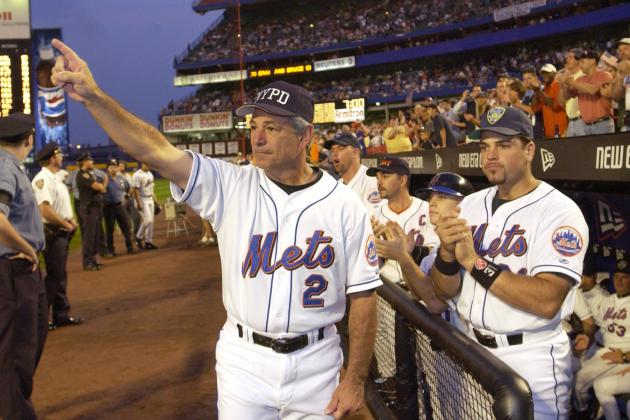
On this day, Phillips recalls being stuck inside his office for the majority of the afternoon in several meetings, which briefed the organization on standard procedure in-case they needed to evacuate due to an emergency.
When Phillips was finally able to get out of the office, he walked down to the bleachers to watch singer Diana Ross, who was rehearsing the National Anthem on the field in preparation for the game that night. He remembers Ross walking around to comfort the rest of the singers in the group, putting her arm on each person to let them know “it was going to be OK.”
Phillips sat there and watched their continued rehearsal, which brought tears to his eyes in what was a very emotional moment given what had just occurred 10 days ago
Later that night, the Mets were trailing late in the game to the Atlanta Braves and what happened next will forever be solidified in baseball history. Who else, but Piazza stepped to the plate and hit one of the most iconic home runs of all-time to put the Mets up 3-2 in the bottom of the 8th inning. The stadium went wild, flags twirled in the air, and in that point in time, hope felt restored. As Phillips said “it gave you a reason to believe.”
In 2002, Mets co-owner Nelson Doubleday sold his 50% stake in the team to Fred Wilpon, whom he split the team stake with 50-50 for the previous 20-some-odd-years.
A report initially stated Doubleday was bought out because of Fred Wilpon’s desire to put his son Jeff in place as COO. According to Philips, this claim is false.
“There was a rule against hiring family members to work in the organization. The feeling was Nelson only sold his half because he felt it was time to move on. There was no conflict (between owners). Only after the deal had gone through was the nepotism rule lifted, which put Jeff in place as COO, but it was not the reason Doubleday left.”
This claim comes as a bit of a surprise due to Doubleday being quoted the following year in the Star Ledger with several critical comments about Jeff.
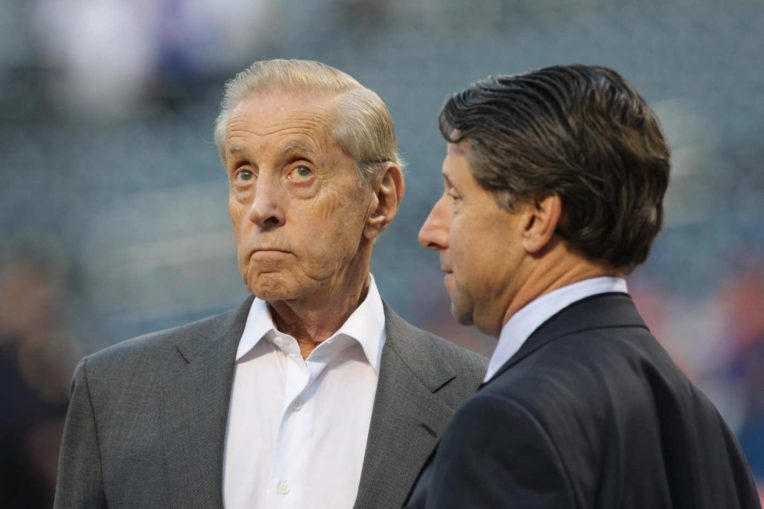
“Mr. Jeff Wilpon has decided that he’s going to learn how to run a baseball team and take over at the end of the year. Run for the hills, boys. I think probably all those baseball people will bail,” said Doubleday.
“Jeff sits there by himself like he’s King Tut waiting for his camel. Hump one. Hump two. They like that, two for the price of one,” said Doubleday, who would reportedly not use his box seats after the sale due to Jeff’s presence.
“Fred and Mr. Doubleday didn’t hang out with each other and didn’t always see eye-to-eye but they were functioning business partners for several decades and were able to co-exist without an all-out civil war going on internally, as some believe,” said Phillips who claims there was no bad blood leading up to the sale.
Despite common public misconception, the former Mets GM had nothing but positive things to say about the Wilpons.
“Fred treated me like a son, and I have the utmost respect for both Fred and Jeff. If you sit with them during a game, it won’t take long to find out how much they truly care about the team. I felt bad when we weren’t playing well (because of how much they cared).
I think Jeff gets a bad rap because he is the owner’s son. If he wasn’t Fred’s son, he likely wouldn’t be criticized as much. Same can be said for my colleague Eduardo Perez. Both men will always be compared to their fathers’, which can be challenging but I’m sure neither of them would have it any other way.
It wasn’t their fault when the Wilpons were one of many investors who were unfortunately scammed in the Bernie Madoff Ponzi scheme. Had this not occurred, I believe they wouldn’t have taken as much heat for how they’ve been running them since it happened. It’s unfortunate.
If you think about it, it’s impressive how little time it took for them to recover from this substantial hit they took financially. They’ve always ran their team like a business and spend based off their revenues. I don’t blame them for that either.”
“I believe their decision to sell was not more so of recognizing that they needed a financial boost to run the team as some may believe, but really just about making the right business decision for themselves at this point in time,” said Phillips in reference to the pending deal that would make Wall-Street billionaire Steve Cohen majority stake owner of the Mets.





